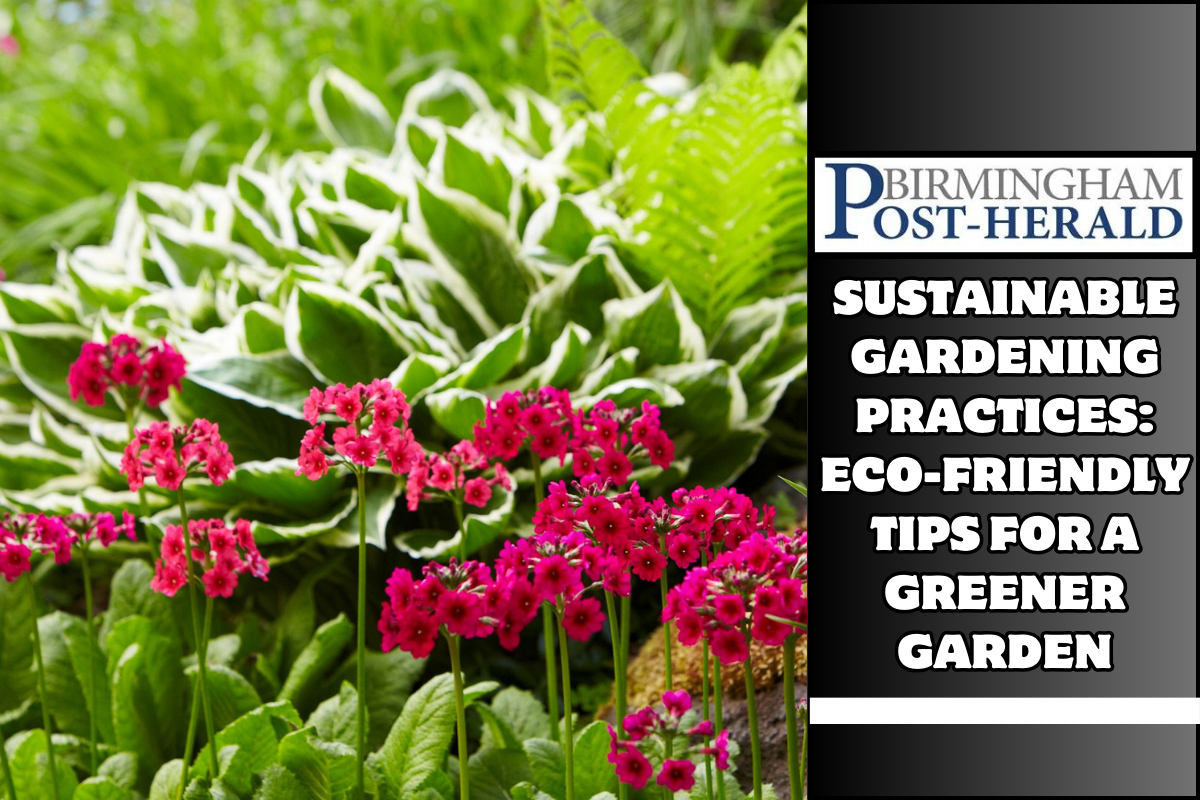Sustainable Gardening Practices: Eco-Friendly Tips for a Greener Garden:-More and more people are becoming aware of environmental problems, so more gardeners are using sustainable methods to make their fields look nice and produce food.
Sustainable Gardening Practices: Eco-Friendly Tips for a Greener Garden
The main goals of sustainable gardening are to protect resources, cut down on waste, encourage biodiversity, and keep the environment healthy. This blog post will talk about eco-friendly garden tips and tricks that you can use to make your outdoor area greener and last longer.
Choose Native Plants
- Native plants do not need as much water, fertilizer, or pesticides because they are already used to the area’s temperature, soil, and wildlife.
- They also give local animals food and a place to live, which helps keep the ecosystem balanced and diverse.
Conserve Water
- You can get water directly to plant roots with drip irrigation or soaker lines, which will save water that would otherwise be lost to evaporation.
- By installing rain barrels, you can gather rainwater and use it to water your plants instead of using water from the city.
- Cover garden beds with organic materials like straw or shredded leaves to keep the soil wet and cut down on how often you have to water.
Practice Water-Wise Gardening
- Put plants that need about the same amount of water together to get the most out of your watering system.
- Pick plants that can survive in dry conditions and don’t need much watering once they’re established.
- Change how often you water based on the weather, and don’t water too much when it rains.
Compost Organic Waste
- Set up a compost bin or pile to turn food scraps, yard waste, and other organic materials into nutrient-rich compost that can be used to improve the soil.
- As a natural fertilizer, compost can help the land stay healthy, hold on to water, and cut down on the need for synthetic fertilizers.
Also Read:-Indoor Gardening: Bringing Nature Inside with Houseplants and Indoor Gardens
Implement Integrated Pest Management (IPM)
- You can get rid of pests and diseases without using a lot of chemical pesticides if you use IPM methods.
- To keep pests under control, attract ladybugs, lacewings, and birds, which are natural enemies.
- To keep pests away and improve plant health, use food rotation, companion planting, and physical barriers.
Reduce, Reuse, Recycle
- Use things from around the house, like jars, containers, or old furniture, in creative ways for yard projects like container gardening, upcycled planters, or garden art.
- For yard structures, paths, and edges, use natural materials like bamboo, untreated wood, or things that have already been used.
Support Pollinators and Wildlife
- Pollinators like bees, butterflies, and hummingbirds need nectar, pollen, and a place to live. Plant local flowers, shrubs, and trees to help them out.
- Instead of using pesticides that hurt animals and helpful insects, use natural ways to get rid of pests.
- Build birdhouses, bee hotels, and butterfly gardens as habitat features to draw and support a wide range of wildlife.
Practice Soil Conservation
- Organic mulches keep soil from washing away, keep water in, keep the soil at the right temperature, and improve the structure of the soil.
- To keep the soil healthy and to keep it from being disturbed too much, rotate crops, cover crop bare soil, and don’t till the soil too much.
Use Renewable and Eco-Friendly Materials
- Pick gardening tools, pots, and other items made from materials that can be used again and again, like bamboo, recycled plastic, or things that break down naturally.
- For fertilizers, soil amendments, and pest control products that are good for the earth and safe for good bugs, choose organic and natural ones.
Educate and Share
- Share what you know and love about sustainable gardening with other people in your community. This will encourage them to do things that are good for the environment and promote environmental care.
- Join gardening clubs, classes, or community gardens in your area to meet other gardeners who share your interests and share ideas, resources, and experiences.
Conclusion
Sustainable gardening is good for the earth and fun for gardeners because it makes gardens that are strong, healthy, and colorful while living in harmony with nature. You can have a greener, more sustainable garden and help the environment at the same time by following eco-friendly tips and habits like using native plants, saving water, composting food waste, integrating pest control, and encouraging biodiversity. Start using these eco-friendly gardening tips right away to help make the environment better and more stable for future generations.
